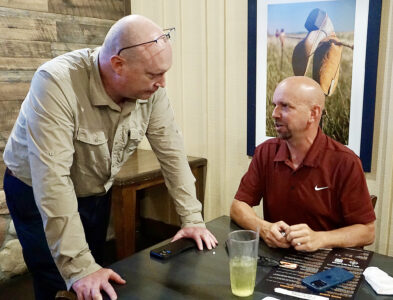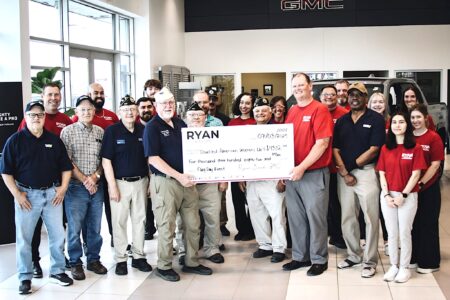What you can do to help
Amid the global pandemic, it’s hard to think of anything to discuss other than the “coronavirus crisis” within Ward County, our region-at-large, and the state of North Dakota. For weeks now, shutdowns of schools, restaurants, and other businesses in Minot and across the United States have many employees working from home, and church gatherings have switched over to live-streaming services instead of meeting together in-person.
While Minot and the region-at-large is understandably focused on their own health and that of their loved ones, there are healthcare professionals and caregivers that are on the front lines providing care and services and are looking out for their respective communities across the region. These “heroes” who wear scrubs rather than capes are concerned about your health, safety, and well-being. And while they care for those in need and risk their own sense of health and security in order to put others first, it is important to acknowledge that healthcare professionals have their own needs that should be addressed.
I continue to hear from colleagues, friends, businesses, and concerned citizens from all across the 16 counties Trinity Health serves – all wanting to know “What can I do?” “How can I help Trinity?” and “How can I help your healthcare workers?” Many people wish they could drop off gifts in person, or give grateful hugs and handshakes, but reality is, we all need to be extra-careful about avoiding the spread of this pandemic-even if we don’t have symptoms.
So, how can you feel like you’re helping and thanking those on the front lines of this virus?
How to Help
1. Order food for your local healthcare provider(s).
We know that most of the communities across our region are feeling socially isolated due to “social distancing,” so think of a way you can help and say thanks. Trinity Health has established a public email inbox for those wishing to submit an offer to help, whether that offer is in terms of equipment, supplies, food, or discounts for our workforce to help get through this crisis. Simply send an email to CommunityKindness@TrinityHealth.org; a team member will follow up with those and help coordinate the logistics behind them (or call 857-5643).
St. Andrews Health Center in Bottineau, St. Luke’s Medical Center in Crosby, Tioga Medical Center in Tioga, Kenmare Community Hospital in Kenmare, and Mountrail County Medical Center in Stanley have caring administrators and outstanding providers who would welcome similar acts of kindness.
Besides sending food directly to the teams working in the hospitals and medical facilities, reach out to the people you know in your community with any job in healthcare or nursing home care and offer to order dinner for their families, or see what they need for groceries and/or do a grocery run for them. Most individuals in healthcare work exceptionally long hours (especially in a crisis like COVID-19), and may not have the time or energy to cook or pick up food/groceries when they have limited time off.
2. Acknowledge and Thank Your Healthcare Professionals
When you can’t be face-to-face, social media is a great place to give virtual hugs, and heartfelt messages. Your medical professionals are already dealing with more than enough stress and concern. On top of it all, they shouldn’t have to feel undervalued or unappreciated. Too often, all of us take for granted the sacrifices that are made from those who provide us care, and unfortunately, it sometimes takes an event on the scale of the coronavirus pandemic (COVID-19) to put things into perspective and remind us how grateful we should be for these caregiving heroes.
3. Donate to Your Local Hospital Foundation or Hospital Auxiliary
Your local hospital foundation and/or hospital auxiliary provides helpful and essential resources to your local hospital. The Trinity Health Foundation and the Trinity Health Auxiliary, for example, provide support, equipment, and medical supply relief to healthcare workers at Trinity Health. These resources, equipment, and supplies are used each and every day to provide the needed care and services to patients before, during, and after a crisis event.
4. Offer Assistance with Childcare or Pet Care
If you know a healthcare professional or hospital staffer with young children, you know that they may be feeling the weight of figuring out childcare options as they continue having to go into their hospital to work each day. With schools closed and daycare centers limiting their hours, it would be extremely supportive to have someone volunteering to help care for their kids during this time. Likewise, healthcare workers who have pets may need and will appreciate someone offering to walk their dogs or feed their furry friends. Consider reaching out to a neighbor, friend, or family member to offer your assistance.
5. Donate Blood
Coronavirus isn’t the only thing bringing individuals into the hospital. Besides needing medical supplies to prepare for and keep up with the pandemic, hospitals always need blood donations. If you’re healthy, please find a nearby place to donate; it’s important.
6. Regardless of How Healthy You May Feel – Self-Quarantine
Staying home to “flatten the curve” is what will help our medical providers, our communities, our state, and most of all, each other. To date, large events have been canceled nationwide. It is also helpful to cancel smaller, casual get-togethers (coffee plans, book clubs, play dates, etc.).
Most importantly, if you start having cold/flu symptoms with a fever, shortness of breath, dry cough, or body aches – call ahead to your doctor’s office, Trinity Health’s FirstCare Clinic, or any emergency department. Most locations are now requiring patients to call beforehand to avoid unnecessary exposures; you may experience a delay in treatment if you have not contacted them first for a remote or drive-thru consultation.
Think about this for a moment, if your employment is outside the field of healthcare, you are able to self-quarantine and isolate and try to stay healthy. Your local healthcare professionals and healthcare staff do not have that ability. These dedicated and committed caregivers are on the frontline(s) doing an outstanding job and giving you their very best putting your needs first ahead of their own.



